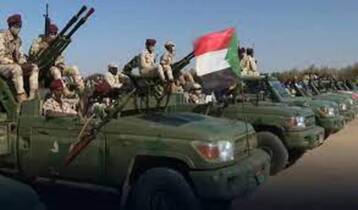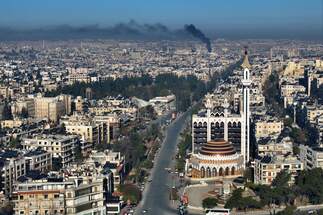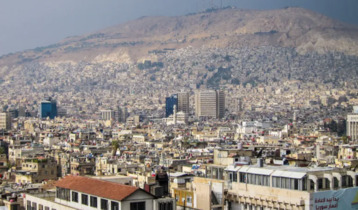-
Iran assassination in Istanbul latest regime murder abroad, say experts

The recent revelation that intelligence officers at Iran's consulate in Turkey instigated the killing of Iranian dissident Masoud Molavi Vardanjani last November is just the latest example of a long-standing foreign policy practice of the Islamic Republic regime, experts say. in Istanbul
Turkish officials told Reuters that two intelligence officers at Iran's consulate in Istanbul were behind the assassination last November of Vardanjani, who criticized Tehran’s political and military leaders.
“Terrorism, and more specifically, the killing of dissidents abroad has been a sad hallmark of the Islamic Republic’s foreign policy. This activity seemed to have peaked in Europe after the Iran-Iraq War and under the presidency of Hashemi-Rafsanjani in the 1990s,” said Behnam Ben Taleblu, a senior fellow covering Iran at the Foundation for Defense of Democracies think-tank in DC
Ben Taleblu said that while there has been a perceived decade-long pause in such operations, there has been an uptick in recent years, especially in Europe.
“The Vardanjani example is merely the latest,” he added.
Masoud Molavi Vardanjani was shot dead on an Istanbul street on November 14, 2019. He had previously worked in cybersecurity at Iran's defense ministry but defected and became a vocal critic of the Iranian authorities.
According to a police report into the killing seen by Reuters, Vardanjani had posted a message on social media targeting Iran's Islamic Revolutionary Guards Corps in August, three months before he was shot dead.
https://twitter.com/masoud_molavi/status/1151530231381078016
The fact that the killing took place in Turkey came as no surprise to Michael Rubin, a resident scholar at the American Enterprise Institute, where he specializes in Iran, Turkey and the broader Middle East.
“Turkey is one of the few countries – Venezuela, Ecuador and Azerbaijan being the others – where Iranians can travel without a visa. This means that it is easy to infiltrate Iranian intelligence operatives and assassins into these countries,” Rubin explained. in Istanbul
While the conclusions of the investigation by the Turks seemed plausible, Rubin said that the problem with the case lies with Turkish President Recep Tayyip Erdogan.
“Erdogan is always more interested in playing politics than justice. He won't lay a finger on the Iranians if he thinks he can get something from them, either diplomatic favors or, personally, a lot of cash,” Rubin said.
Both analysts drew comparisons with how Turkish authorities handled Vardanjani’s assassination to that of the gruesome killing of Saudi Arabian journalist Jamal Khashoggi in October 2018.
Rubin said it was unlikely for Turkey to treat the latest incident in the same way as it did with the Saudis in the aftermath of Khashoggi’s murder.
“Turkey is a lifeline for Iran about smuggling and sanctions-busting. They have put aside their sectarian divide as well to cooperate in their diplomatic efforts to undermine Saudi Arabia,” said Rubin.
Ben Taleblu described the relationship between Turkey and Iran as a “kaleidoscope
“Turkey has long-been a permissive jurisdiction for Iranian malign activities, but the publication of this information citing unnamed Turkish officials is sure to hurt ties, particularly as both parties are on opposing sides of the Syrian conflict, with a particular emphasis on Idlib,” Ben Taleblu said.
In 2018, several European countries expelled Iranian diplomats from their soil after the revelation that Tehran plotted to bomb an annual Iranian opposition conference in France.
The Dutch Intelligence service AIVD expelled two Iranian embassy staff in July 2018 while the Austrian foreign ministry stripped an Iranian embassy official of his diplomatic immunity after his arrest in Germany for “conspiracy to blow up an Iranian opposition meeting in France.”
“Iranian embassies often double as intelligence gathering hubs as well as a base to coordinate terror operations. The question here is, which security organ, the Ministry of Intelligence or the IRGC, gave the order?” Ben Taleblu asked. in Istanbul
The two officials who spoke to Reuters about the investigation into Vardanjani’s killing said Ankara would be making a statement soon.
“We will see. It's brinkmanship, but I do not think Turkey will go as far with Iran as it went with Saudi Arabia. It will leave an 'out' or some sort of diplomatic way to de-escalate,” Rubin said. levant
source: Ismaeel Naar levant
You May Also Like
Popular Posts
Caricature
BENEFIT Sponsors BuildHer...
- April 23, 2025
BENEFIT, the Kingdom’s innovator and leading company in Fintech and electronic financial transactions service, has sponsored the BuildHer CityHack 2025 Hackathon, a two-day event spearheaded by the College of Engineering and Technology at the Royal University for Women (RUW).
Aimed at secondary school students, the event brought together a distinguished group of academic professionals and technology experts to mentor and inspire young participants.
More than 100 high school students from across the Kingdom of Bahrain took part in the hackathon, which featured an intensive programme of training workshops and hands-on sessions. These activities were tailored to enhance participants’ critical thinking, collaborative problem-solving, and team-building capabilities, while also encouraging the development of practical and sustainable solutions to contemporary challenges using modern technological tools.
BENEFIT’s Chief Executive Mr. Abdulwahed AlJanahi, commented: “Our support for this educational hackathon reflects our long-term strategic vision to nurture the talents of emerging national youth and empower the next generation of accomplished female leaders in technology. By fostering creativity and innovation, we aim to contribute meaningfully to Bahrain’s comprehensive development goals and align with the aspirations outlined in the Kingdom’s Vision 2030—an ambition in which BENEFIT plays a central role.”
Professor Riyadh Yousif Hamzah, President of the Royal University for Women, commented: “This initiative reflects our commitment to advancing women in STEM fields. We're cultivating a generation of creative, solution-driven female leaders who will drive national development. Our partnership with BENEFIT exemplifies the powerful synergy between academia and private sector in supporting educational innovation.”
Hanan Abdulla Hasan, Senior Manager, PR & Communication at BENEFIT, said: “We are honoured to collaborate with RUW in supporting this remarkable technology-focused event. It highlights our commitment to social responsibility, and our ongoing efforts to enhance the digital and innovation capabilities of young Bahraini women and foster their ability to harness technological tools in the service of a smarter, more sustainable future.”
For his part, Dr. Humam ElAgha, Acting Dean of the College of Engineering and Technology at the University, said: “BuildHer CityHack 2025 embodies our hands-on approach to education. By tackling real-world problems through creative thinking and sustainable solutions, we're preparing women to thrive in the knowledge economy – a cornerstone of the University's vision.”
opinion
Report
ads
Newsletter
Subscribe to our mailing list to get the new updates!






















